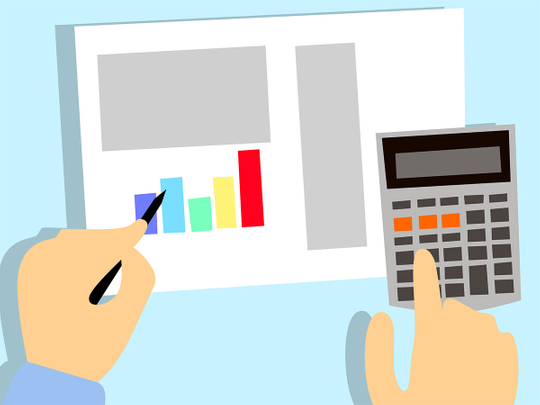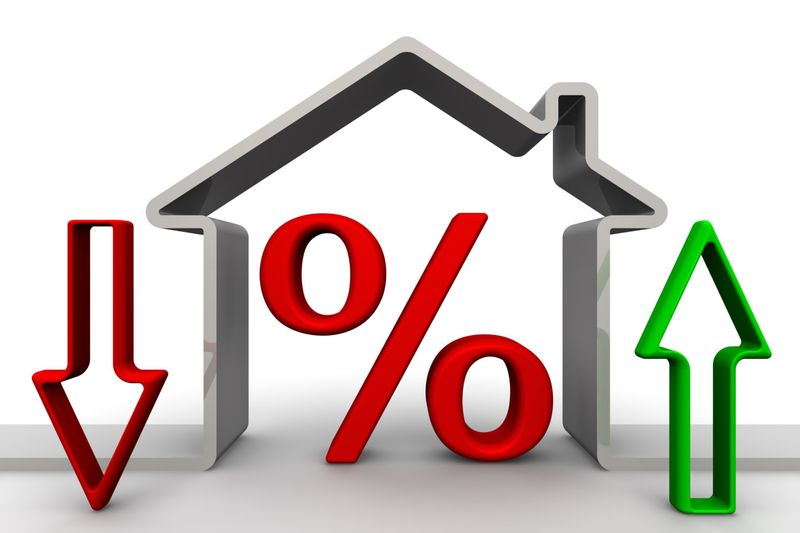
Dubai: It’s crucial to work out the total cost of the credit you’re taking out, including interest payments, and not just the amount you’re borrowing or how much you can afford to pay every month.
Taking the time to work out the full cost of any borrowing lets you plan your finances and ensure that you really can afford it. However, let’s first understand what affects your borrowing costs.
Knowing what plan affects your borrowing costs the most
How much you’ll pay to borrow money depends on how much you need and how quickly you plan to repay it.
For example, if you want to borrow a small amount over a short period of time with a low interest rate, you might well pay very little interest (or none at all if you use a credit card charging 0 per cent interest).
On the other hand, borrowing a large amount of money over a long time will cost you more.
It is generally recommended to use the APR (the annual percentage rate or interest rate for a whole year), rather than just a monthly fee or rate, to compare products. The lower the APR the better, but also look at how much it will cost overall.
This will usually be more for a longer-term loan even if the APR is less, and will show as the total amount payable.

What are my borrowing options?
Let’s look at an example. Assume Khalid needs to borrow Dh1,000 to replace his old water heater.
He gets a quote from an energy company for the water heater and the installation, including paying back the cost over two years.
However, when Khalid reads the contract he notices that if he takes out their credit for two years he will pay more than Dh300 in interest.
Khalid looks around at other options. As Khalid has a good credit rating, he also considers the below:
• Taking out a credit card with an introductory interest-free period of 15 months on new purchases, or,
• Applying for a personal loan with an interest rate of 10 per cent that he can pay back over two years.
This is how much Khalid might have to repay each month and overall:
In the end, Khalid takes a look at his monthly budget and decides that he can afford to take out the credit card and pay the extra Dh10.76 each month to avoid having to pay any interest.
It means he will have paid off the balance in 15 months and he won’t have been charged interest. Khalid will only save money because he knows he can make the payments within the 15 months.
If you don’t think you would be able to do that, a credit card could cost you more.
What this table shows is the difference in repayment plans over different periods of time and how being able to pay a little more each month might mean you’re able to take out a much cheaper form of credit.
It also highlights the importance of shopping around for credit and not just taking the first product you are offered.
Note: Always spend some time shopping around for credit. Use comparison websites to look at different deals. Be aware of any extra charges or fees. All loans should tell you how much you’ll pay back overall, including any interest.
Regular versus flexible payments
A loan agreement will have an amount you have to pay back every month. It might charge an early repayment fee if you do clear it ahead of time.
While some banks do not charge early settlement fees on personal loans, others charge one percent – the maximum penalty allowed under UAE central bank guidelines. That means if you have an outstanding balance of Dh100,000, you will pay Dh1,000 to pay off the loan early.
Is it cost-effective to pay off your loans early?
While paying off a debt before the term is up is a great way to increase your monthly income, it’s not always the most straightforward process.
If you have a credit card, for example, you can clear it without any repercussions. However, paying off a personal loan ahead of schedule can see you hit with a penalty – like the one per cent fine discussed above.
The same applies to car loans. Clear the balance early and you will invariably be stung with a one per cent early settlement fee.

Is it time to shop for a new loan?
One thing to consider for personal loans is that if you took your loan out some time ago, the market may have changed and rates may have dropped.
So, if you don’t have the money to pay off the balance now, it might be worth shopping around for a new personal loan and finding a deal that will reduce your payments.
After knowing what interest rate you are currently paying, also determine how much you will repay if you stay with this deal and how much you will pay if you clear the debt now. Also ask what the penalties are if you pay it off now.
After which add together the cost of repaying the loan now to the penalty total and use this figure to compare your loan with other personal finance options on the market.
If other options can’t beat the figure, then stay where you are. However, if the total cost of the new loan is less than the figure, go ahead with a new deal.
However, you need to tread carefully. For a start, you may incur that one per cent early settlement fee. Then you may be hit with upfront or arrangement fees on a new loan – which are also typically one percent of the loan.
Also, when sizing up a new loan, you must consider whether it is a flat or reducing rate as comparing the two will be misleading.
Repaying your loan early at any time, in full or part, can be a good way of minimising cost. You can ask the lender for a ‘settlement statement’ showing how much you will save by repaying early.
Other forms of borrowing such as overdrafts and credit cards are more flexible with low or no minimum repayment. But the interest rates on these tend to be higher and some overdrafts charge an initial arrangement fee.
Few key perks of regular repayments: Repaying a regular fixed amount might help you budget as you know exactly when you will have cleared the debt.
You should be able to repay your loan early with no penalty. However, on the other hand, regular payments can also be a downside and might make it harder to budget if your income fluctuates.
Calculating the cost of borrowing
You can work out how much it will cost you to borrow if you take out a loan or a credit card using the information that lenders have to give you.
When you apply for any debt-related transaction, they tell you how much you’ll have to repay in total, how much you’ll have to pay every month, the interest rates, any fees or charges and the APR.
You should find this information on the credit card or the loan company’s website. If it’s not on the website, the firm will need to send it to you before you enter into the agreement and explain key elements of the agreement.
In the case of credit cards, this will be based on certain assumptions about how you’ll use the card. You can also use an online calculator to work out the true cost of any borrowing – and it will only take a few minutes.
Note: Any gap in your repayment schedule and you could be hit by fees and additional charges. It could also harm your credit rating because lenders look at how you’ve managed your existing credit when working out whether or not to lend you money.
Make sure there is enough money in your bank account each month to cover your repayments and set up a regular standing order (for a fixed amount) or Direct Debit (if the payments vary) so you don’t miss a payment.








